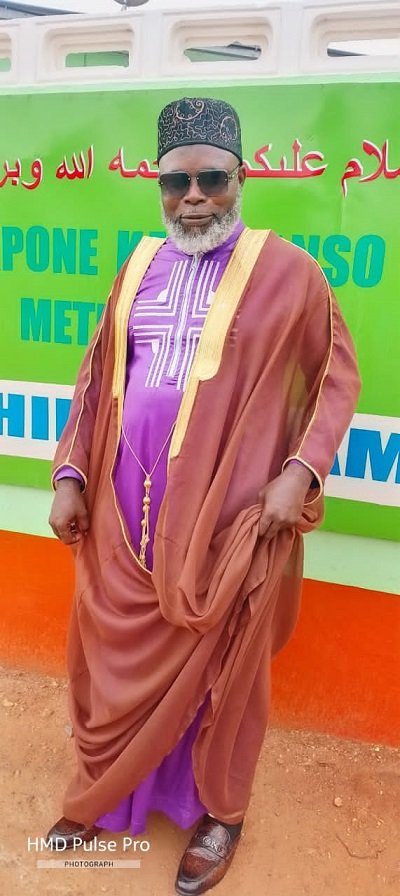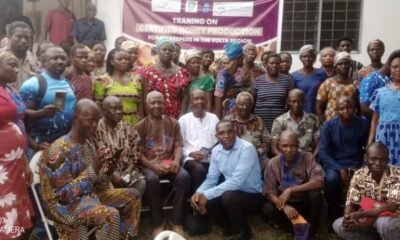Fruitful Living
25 ways to set your mind on things above (Part 2)
Do not be anxious about anything, but in everything, by prayer and petition, with thanksgiving, present your requests to God. And the peace of God, which transcends all understanding, will guard your hearts and your minds in Christ Jesus – Philippians 4:6
INTRODUCTION
Today we bring you the final part of 25 Ways To Set Your Mind on Things Above, which we ended on number 13, last week.

The apostle Paul told us to set our minds on“things above,” that is, heavenly things, not on things on the earth,” that is, earthly things – Colossians 3:2. We need to be intentional about the information we feed our minds with and what we process with our minds.
SETTING OUR MIND ON THINGS ABOVE.
- MAKE PRAYER AND BIBLE READING A DAILY HABIT
Scripture teaches us everything we need to know about God and His will so we can live a new life. It shows us the good things that should occupy our minds to pursue holiness. That’s why we must have quality time on a daily basis meditating in the Bible and praying to the Lord, asking Him to help us put what we are learning into practice Joshua 1:8; Psalm 1:2; Matthew 6:6.
- MEMORISE BIBLE VERSES
Committing excerpts from the Word of God to your memory is a great way to keep your mind on heavenly things. The first step is to select verses from Scripture that will help you remember what God has done for you, who He is, and the promises He gave to all of us. Use memorisation techniques that best suit you, and make sure to practise every day. Keep bringing verses you’ve already memorised to your mind throughout the day, so you don’t forget them Psalm 119:11.
- ASK GOD TO SEARCH YOUR HEART
It takes courage to do that. We know that there are many things even in a believer’s mind that displease the Lord. Our sins come from them. But sin itself blinds us to our wrong ways. That’s why we need to ask the Lord to:
- Search our heart, our inner being Psalm 139:23.
- Show us the things we do that grieve Him Psalm 139:24.
- Help us sanctify our minds and change our ways Psalm 51:10.
- CONFESS YOUR SINS AND ASK FOR GOD’S FORGIVENESS DAILY
This is a critical habit that will bring major changes to your life and your relationship with the Lord. So, here are a few things that will help you pursue a heavenly mindset and a holy life:
- Think about your day.
- Ask God to help you remember the sins you committed and the things that you shouldn’t have done.
- Confess them to God.
- Ask Him for forgiveness, believing that Jesus has already paid the price at the cross.
- Ask Him to help you fight temptation and not fall into those sins again.
- Thank God and believe you’re forgiven Proverbs 28:13; 1 John 1:9.
Make it a daily routine in your life.
- FLEE FROM TEMPTATION
During trials, we must persevere. But, when it comes to temptation, we can never overestimate our strength to resist it Matthew 26:41. We must flee from the situation right away Genesis 39:11-12; 1 Corinthians6:18.
The more we allow our eyes, ears, and thoughts to be exposed to such things that tempt us, the highest the risk that we may fall. We must protect our minds and not give opportunities for the devil to tempt us Ephesians 4:26-27.
- CREATE STRATEGIES TO BRING YOUR MIND TO GOD THROUGHOUT THE DAY
You need to be intentional to bring God’s Word into your mind during your daily life. Here are some suggestions:
- Thank God for every good thing that happens (a good meal, a beautiful sunset, a fast commute, a pleasant conversation, a problem solved, a good idea you had, etc.).
- Pray quietly for people you meet.
- Use your breaks or waiting time to read a portion of Scripture or talk to God.
Use your imagination and think of other good ways to keep connecting to God at all times.
- AVOID INDULGING IN EARTHLY PLEASURES
Most sins don’t happen unexpectedly. They begin with little temptations that we give in, thinking that it’s no big deal. But it is. Every sin is a huge deal Romans 6:23. So, we must learn to resist every temptation that draws us to do something that will feed our earthly urges and bring us self-centred gratification. We need to pursue the will of God and resist any impulse that can lead us to sin James 1:14-15.
- PRACTISE FASTING
When we fast, we give up something we need (usually food) to dedicate time and energy exclusively for the Lord Matthew 4:4. Whenever you can, take some time to fast, pray, and seek the presence of the Lord. The discipline you learn through fasting will help you control other urges of your body and mind that may lead you to sin 1 Corinthians 9:27.
- BE THANKFUL TO GOD
Even during difficult times, we have a lot of reasons to be thankful to God. The Lord has done so much for us; He has shown His great love for us in many ways:
- He gave His son to pay for our sins Romans 5:8.
- He forgave us (1 John 1:9).
- He adopted us as His own children John 1:12.
- He gave us eternal life with Him John 3:16.
And much more. We don’t even notice most of the blessings that He gives us every day. So, make sure to take a moment to thank the Lord for all He does for you daily Psalm 145:9; James 1:17. Be specific and let each reason you mention sink in your mind and lead you to worship the Lord for His kindness.
- LEARN TO THINK INTENTIONALLY
All humans have a sinful nature. It means that it is natural for us to sin. So, thinking about heavenly things is not natural for us. We need to practise it intentionally. If we let our minds wander freely, most of the thoughts that come to us are usually not heavenly thoughts. So, avoid letting your mind wander without purpose. Feed it with good content. For example, if you’re tired and need to relax, instead of letting your thoughts run freely, put on some good music that helps you think about godly things while you rest.
- BEWARE OF YOUR PRIDE
Pride is a threat that lives inside every one of us. It tempts us to think that our good works are somehow making us better than other people or that we are worthy of the kindness of God. Don’t let worldly thoughts like that creep into your mind. Do this instead:
- Remain humble James 4:6.
- Consider others better than yourself Philippians 2:3.
- Keep in mind that you don’t deserve any favour from the Lord Ephesians 2:8-9.
- Remember that the good things you do also come from the Lord James 1:17.
- PUT YOUR HOPE IN GOD
When we decide to live our lives for God, we face all sorts of resistance, including from our own earthly nature. We need to do our best to fight temptation and focus our minds on heavenly things. And we need to trust God that He will take care of what’s beyond our reach Philippians 4:13. Trust Him with your needs, your circumstances, your future 2 Corinthians 4:16-18. Put your hope in Him and Him alone Romans 15:13.
The apostle Paul gave us a bold challenge. Discipline and intentional actions will help you keep your mind connected to the word of Christ Jesus, who is seated at the right hand of God in the heavenly places Ephesians 2:6. Set your mind on the things above, and the peace of God will guard your hearts and your minds in the Lord Jesus Christ Philippians 4:6-9.
End note.
If you have not yet confessed Jesus as your Lord and personal Saviour, this is an opportunity to do so. And when you do, just surrender totally to Him with your eternal future, for He will never leave nor forsake you – Hebrews 13:5
Stay Blessed!
For further inquiries please contact us on Tel Nos. 0243588467 or 0268130615
Email: saltnlightministries@gmail.com
Website: saltandlightministriesgh.org
Dr. Joyce Aryee, the author
Fruitful Living
Eid-ul-Adha: A living legacy of faith, sacrifice, and devotion

We begin in the name of Allah, the Most Merciful, the Most Compassionate. We praise Him, seek His help and forgiveness, and seek refuge in Him from the evils of our souls and the wrongs of our actions.
May peace and blessings be upon the Prophet Muhammad (peace be upon him), his family, his noble companions, and all those who follow his path until the Day of Judgment.
Understanding the essence
of Eid-ul-Adha
Eid-ul-Adha, the Festival of Sacrifice, is one of the two major Islamic celebrations observed by Muslims across the world.
It commemorates the unwavering submission of Prophet Ibrahim (Abraham, peace be upon him) to Allah’s command when he was prepared to sacrifice his beloved son Isma’il (Ishmael, peace be upon him). Allah, in His infinite mercy, intervened and replaced the son with a ram, thus honouring Ibrahim’s sincerity and faith.
This moment of sacrifice is recorded in the Qur’an: “Then when they had both submitted and he put him down upon his forehead, We called out: ‘O Ibrahim! You have fulfilled the vision.’ Indeed, We thus reward the doers of good.” (Surah As-Saffat, 37:103–105)
This act of obedience is not merely a historical account. It is a living symbol that forms the essence of Eid-ul-Adha.
Ibrahim (A.S): The Architect
of Submission
Before the moment of sacrifice, Prophet Ibrahim and his family played critical roles in establishing Islam’s foundational pillars:
1. The building of the Ka‘bah
Prophet Ibrahim and his son Isma’il were chosen to construct the Ka‘bah, the sacred House of Allah in Makkah. The Qur’an records this noble moment:
“And [mention] when Ibrahim was raising the foundations of the House and [with him] Isma’il, [saying], ‘Our Lord, accept [this] from us. Indeed, You are the Hearing, the Knowing.’”
(Surah Al-Baqarah 2:127)
This structure remains the spiritual centre of Muslim worship, facing which over a billion Muslims direct their daily prayers.
2. The struggle of Hajar (Hajara) between Safa and Marwa
The mother of Isma’il, Hajar (Hajara), exemplifies a profound lesson of patience and faith. Left in the barren valley of Makkah with her infant, she ran between the hills of Safa and Marwa, desperately searching for water. Her perseverance was rewarded when the well of Zamzam sprang forth at the feet of her baby.
Her sincere struggle is now ritualised in Hajj as the Sa‘i between Safa and Marwa—a reminder of the role of women, the power of du‘a, and the value of trust in Allah’s provision.
Sacrifice at Mina and the
Rites of Jamarat
During Hajj, pilgrims reenact Ibrahim’s confrontation with Shaytan at Mina, where he rejected the devil’s temptation and cast stones at him. This act is now observed in Hajj as the ritual of stoning the Jamarat, symbolising the rejection of evil, temptation, and disobedience.
It is a vivid spiritual lesson: the path to Allah is one of resistance to distraction and sin, and one must be prepared to fight these forces with unwavering faith.
The essence of Arafat in Hajj
The Prophet Muhammad said:“Hajj is Arafah.” (Sunan al-Tirmidhi, 889)
Standing on the plain of Arafat, in deep humility and supplication, is the heart of Hajj. It represents the Day of Judgment, when all of humanity will stand before their Creator. The Prophet said: “There is no day on which Allah frees more people from the Fire than the Day of Arafah.” (Sahih Muslim, 1348)
For pilgrims, Arafat is a time of repentance, reflection, and renewal— and for non-pilgrims, fasting on that day is highly recommended.
Three core lessons from the
Sacrifice of Prophet Ibrahim
(A.S.)
1. Absolute obedience to Allah
Ibrahim’s willingness to sacrifice his son teaches that the essence of faith is unquestioning obedience to Allah. He prioritised divine command over emotion, logic, or comfort.
Takeaway:
In our lives, we must also be ready to put aside our desires, egos, and even attachments if they conflict with Allah’s instructions. This may involve sacrifices such as waking up for Fajr, staying away from haram income, or being truthful in difficult situations.
2. Sincere intention and inner sacrifice
The real essence of the sacrifice lies in the heart’s submission to Allah.
It is neither their meat nor their blood that reaches Allah, but it is your piety that reaches Him.”
(Surah Al-Hajj 22:37)
Takeaway:
Every act of worship should be grounded in sincerity. Whether it is prayer, charity, or sacrifice, what matters most is the purity of our intention.
3. Sacrifice for the greater good
The legacy of Eid-ul-Adha teaches us that sometimes, faith requires us to give up what we love for a greater purpose. Sacrificing wealth, time, or status in the path of Allah or for the benefit of others leads to spiritual elevation.
Takeaway:
Use your resources such as time, money, skills, for acts of benefit: support the poor, educate the young, assist the sick, and build your community.
Celebrating Eid-ul-Adha: A
Festival for all Muslims
Even for those who do not go on Hajj, Eid-ul-Adha holds immense significance. Muslims across the world participate in the act of Qurbani (sacrifice) to honor the tradition of Ibrahim (A.S.).
Types of animals and their
symbolism
Permissible animals include goats, sheep, cows, and camels. Each must meet a minimum age and be free of defects. The sacrificed animal is then divided into three parts: one for the family, one for relatives and friends, and one for the poor and needy.
This distribution reflects the spirit of sharing, compassion, and social responsibility—values at the heart of Islam.
The eternal message of Eid-ul-Adha
Eid-ul-Adha is not merely a celebration; it is a living tradition that calls us to:
• Submit like Ibrahim,
• Strive like Hajar,
• Sacrifice like Isma’il,
• Reflect like the pilgrims at Arafat.
May this Eid awaken within us a renewed commitment to obedience, sincerity, and compassion.
Let us make every Eid-ul-Adha a step forward in our spiritual journey, embodying the values of submission, sacrifice, and service to humanity. I wish every Muslim Eid Mubaarak
By Imaam Alhaji Saeed Abdulai
(Kpone Katamanso Metropolitan Chief Imaam)
Fruitful Living
Steps taken by government to combat illicit drugs (Final part)
The Minister for the Interior, Muntaka Mohammed-Mubarak, has reaffirmed the government’s commitment to combating drug abuse and illicit trafficking for a safer environment which would
go a long way to make Ghana a drug-free country. 3News.com (2025)
Solutions to Illicit Drugs from the Islamic perspective
are comprehensive and emphasise of both prevention and treatment:
Tarbiyah (Islamic nurturing): Instilling strong Islamic values from childhood through Qur’anic education, regular prayer, and association with righteous companions.
Community preaching (Da’wah): Imams must consistently raise awareness during khutbahs and Islamic programs about the dangers of drugs and the beauty of a sober, productive life.
Faith-based rehabilitation: Mosques and Islamic centers can partner with medical institutions to offer Qur’an therapy, spiritual counseling, and structured recovery programs.
Islamic youth clubs: Providing youth with halal entertainment, mentorship, and purposeful engagement can steer them away from harmful peer groups.
Zakat and Sadaqah: Channelling funds to support families of victims and establishing centres for rehabilitation.
Role of Parents, Society, Muslim Chiefs and Imams:
Parents must be vigilant and provide emotional support. A loving, nurturing home reduces a child’s vulnerability to drugs.
Society should de-stigmatize addiction. Drug users should be seen as patients needing healing, not criminals deserving rejection.
Muslim Chiefs must lead community campaigns, setting moral examples and supporting policy enforcement.
Imams must be more than religious leaders—they must become counsellors, educators, and advocates. Their leadership can shift public perception and guide collective action.
Conclusion
Illicit drugs pose one of the most dangerous threats to our society, undermining our religious values, harming our youth, and destroying our future. The Islamic position is clear and
Unequivocal: such substances are forbidden due to their destructive consequences on all aspects of life. Islam does not merely condemn the act but calls for a holistic response—spiritual, social, and structural.
As a society, particularly as Muslims, we must rise to confront this crisis with faith, compassion, and commitment. We must not only preach against drugs but actively work to rehabilitate victims, educate the next generation, and partner with public institutions to create a society of wellness and righteousness.
Recommendations
1. Introduce Islamic drug awareness education in madrasas and public schools, using Quran and Hadith-based materials to instill moral responsibility.
2. Create partnerships between the Ghana Narcotics Control Commission, Ghana Health Service, and Muslim organisations to develop culturally sensitive rehabilitation centres.
3. Train Imams and teachers in basic mental health and drug abuse counselling to serve as front-line responders in communities.
4. Utilise Friday sermons (khutbahs) nationwide to address the dangers of drug abuse periodically and provide practical steps for prevention.
5. Encourage community surveillance, where parents, chiefs, and youth groups report dealers and suspicious activities to the authorities.
6. Establish mentorship programmes in every Muslim community where successful, drug-free role models mentor youth.
7. Form interfaith coalitions, working across religious lines to tackle the drug menace as a national threat rather than a religious issue.
8. Provide job skills training for rehabilitated victims, helping them reintegrate into society and live dignified, self-sufficient lives.
By Imam Alhaji Saeed Abdulai, the Author







